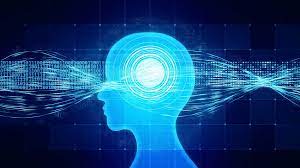Memory loss is a multifaceted condition with a myriad of potential causes, making its diagnosis and treatment a complex endeavor. In this article, Evoke Neuroscience delves into the intricate processes used to identify memory loss issues and explores various treatment possibilities to manage this enigmatic phenomenon.
Diagnosing Memory Loss
Accurate diagnosis requires a systematic approach that combines medical assessments, cognitive tests, and, in some cases, brain imaging. The process begins with a thorough evaluation of the individual’s medical history and a comprehensive physical examination to identify any underlying health issues contributing to memory loss.
Next, Evoke Neuroscience a neurological examination assesses reflexes, coordination, muscle strength, and overall neurological function. Neurocognitive tests are employed to evaluate memory, problem-solving abilities, attention span, language proficiency, and spatial skills. Blood tests can uncover vitamin deficiencies, thyroid disorders, or other conditions that may be connected to memory problems.
In certain instances, imaging tests such as CT scans, MRI scans, or PET scans can be instrumental in detecting brain abnormalities like inflammation, strokes, or tumors. After a meticulous review of these assessments, healthcare providers can often pinpoint an underlying cause for the memory loss.
Managing Underlying Conditions
If memory loss is attributed to conditions such as depression, anxiety, or vitamin deficiencies, addressing these underlying issues can significantly improve memory function. The prescription of medications to treat depression or anxiety may help restore memory capacity. Additionally, nutritional deficiencies can be rectified through supplements like vitamin B12, potentially alleviating memory loss symptoms.
Cognitive Training and Rehabilitation
Certain cases of memory loss can benefit from cognitive training and rehabilitation. Techniques such as employing mnemonic devices, establishing daily routines, and utilizing calendars and reminder notes can be particularly advantageous for individuals with mild cognitive impairment or early-stage dementia. Professional cognitive rehabilitation programs can offer tailored strategies to enhance memory function and improve daily life.
Medication
In cases of progressive memory loss due to diseases like Alzheimer’s, specific medications may help slow down the decline. Cholinesterase inhibitors, for example, work to boost the levels of chemicals responsible for memory and judgment, potentially alleviating cognitive symptoms in some individuals with Alzheimer’s. Memantine, another medication, regulates glutamate activity and may delay the progression of Alzheimer’s symptoms for some patients.
In conclusion, Evoke Neuroscience memory loss is a complex condition that demands a comprehensive approach to diagnosis and treatment. Accurate assessment through medical evaluations, cognitive tests, and imaging, when necessary, can uncover the underlying causes of memory loss. Managing these underlying conditions, implementing cognitive training and rehabilitation, and considering medication options when applicable all play crucial roles in addressing memory loss and improving the overall quality of life for affected individuals.



